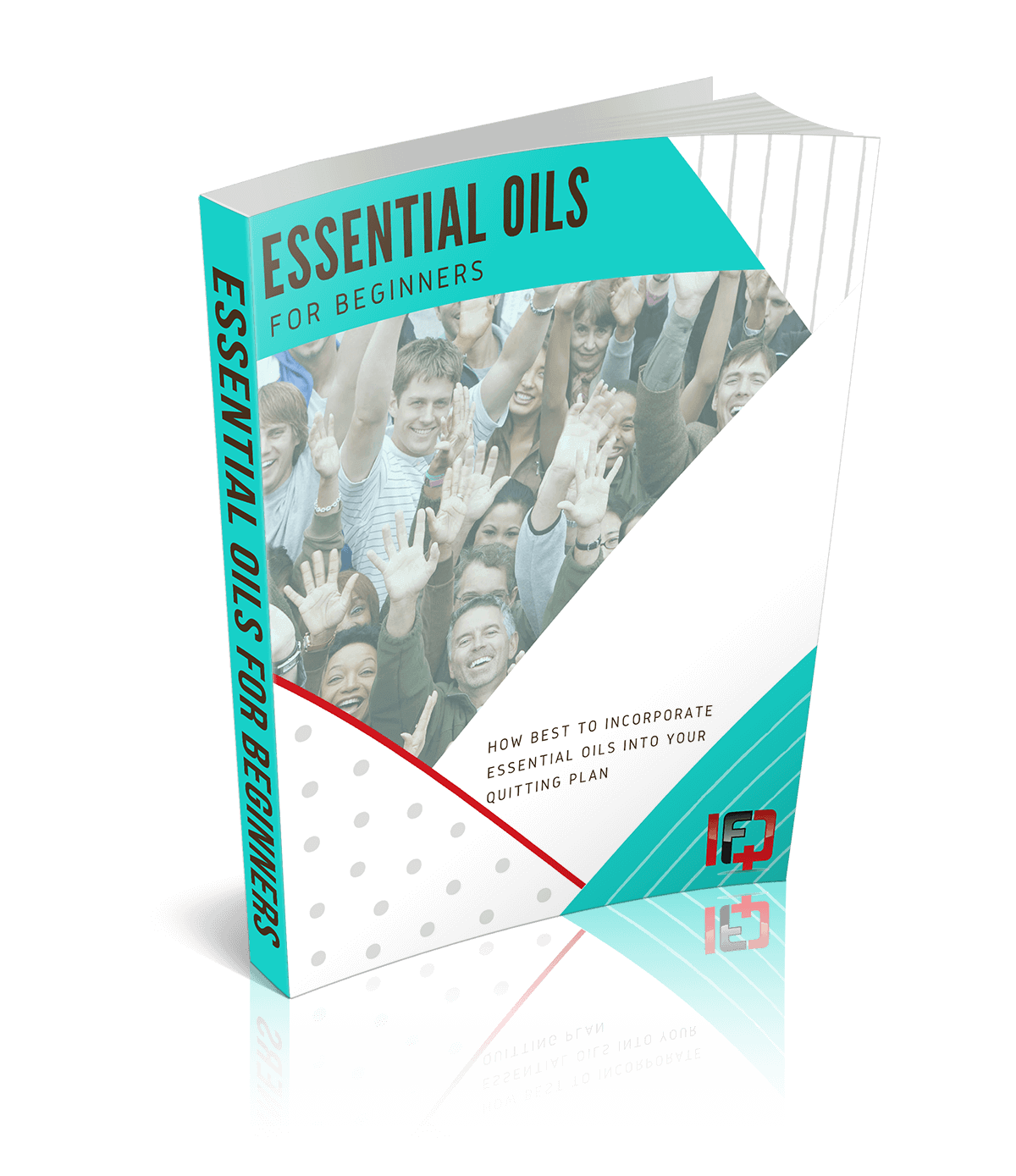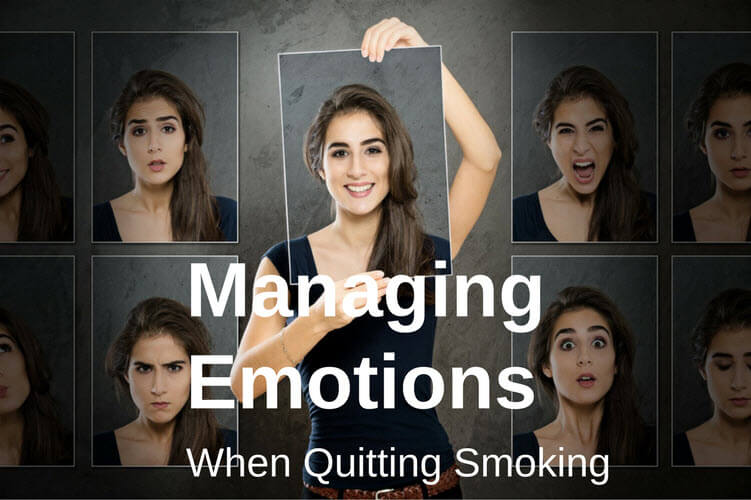Managing Emotions When Quitting Smoking
Ever thought about or tried quitting smoking? It’s tough … no doubt about it. Succeeding may have been the most difficult thing a person could do … until now.
But, why is it so hard to quit? The addiction to the habit is definitely ONE of the biggest reasons, but not the ONLY reason.
Consider your thoughts and emotions when it comes to quitting, right now. When you just think about quitting, what are the first three (3) feelings or emotions that pop into your head? (enter them in the comment section below … you’ll see you are not alone).
Ok, so what are some of those emotions?
They’re mostly “negative” emotions, right? Do you experience GUILT for still smoking or PESSIMISM about your chances of succeeding?
What about HOPELESSNESS due to failed past attempts? Is ANGER in there, too? Have you noticed carrying the burden of needing to quit has grown heavier with time?
24 hours after quitting, anxieties PEAK. For many, anxiety levels should begin to return to pre-quitting levels within two weeks. For others, it may take a couple of months.
One minute you feel fine, the next you feel like crying and maybe cannot even put your finger on why. Other times you may feel completely proud and on top of the world for your accomplishments, quickly followed by wanting to break something (Or, God help you … someone).
These ups and downs are quite “normal” for the person who is quitting … no matter where on the journey of quitting they may be. Whether a person is just gearing up to quit or is several months in, the pendulum of emotions rarely stops swinging. But, isn’t that really just life? I mean, show me a person whose emotions and feelings do not swing in the course of a day — or maybe … don’t. (that person sounds creepy) But, back to the person who is quitting, feelings of anger, depravity, anxiousness, sadness and others can consume a person — wearing them out emotionally, spiritually AND physically.
The person quitting smoking needs to know (and accept) that we were using nicotine and the act of smoking to trigger “good feelings” in the brain … even though nicotine causes our body stress … all the way down to the cellular level. Other than constricting blood flow and quickening the heart rate, nicotine also causes endorphins (“pleasure-emitting” chemicals) to be released in the brain. When the mind is deprived of those endorphins combined with feelings of loneliness (some people quitting smoking say this can be worse than break-ups with lovers), a person can really feel isolated and anxious.
Keep in mind, cigarettes and nicotine are NOT the best way to release endorphins. There are much safer and better ways for you and your brain to feel pleasure …
From exercise (I know, I know … that’s about the last word someone quitting smoking wants to see) to reading a good book or watching a movie to time spent with family and friends, there’s a bunch of ways to bring pleasure to the brain. And, many of which are good distractions when cravings come anyway.
Let me ask you one more question …
You’ve noticed there are tons of products out there like patches, pills, gums, lozenges, etc. Now, those can help with the physical addiction, but … Have you noticed the pharmaceutical companies and most products do NOT address feelings and emotions – the two things at the very core of succeeding when it comes to quitting.
Sure, the pharmaceutical companies will push a product, then tell you their products really only work when YOU get support and help. What does one need support and help with?
Their emotions and how they are feeling when quitting.
That’s why at I Finally Quit, Inc. we train and educate how to get support from those already in your life and from online groups. (Steps 2 and 3 of our 8 Steps to Quit Smoking).
Sometimes you need someone or something to pick you up off the ground, right?
Well I Finally Quit, Inc and dōTERRA have just what you need to get you up and motivated.
Actually, we’ve put together an Emotions and Quitting webinar that addresses how very targeted and specific essential oils, when used properly, can help:
-
Promote …
- feelings of comfort, putting you on a hopeful path of emotional healing,
- feelings of contentment, composure, and reassurance when anxious feelings overwhelm your emotions,
- the liberating feelings of contentment, relief, and patience,
- feelings of optimism, cheerfulness, happiness, and peace
- feelings of confidence, courage, belief, reassurance, and
- feelings of comfort and hope.
-
Counteract …
- negative emotions of anger, guilt, anxiousness and fear,
- negative emotions of feeling down, blue, or low,
- negative feelings of boredom and disinterest,
- negative emotions of doubt, pessimism, and cynicism,
- negative emotions of grief, sadness, and hopelessness
Are life’s anxious moments leaving you feeling overwhelmed and afraid?

If so, come register for the free webinar on “Emotions and Quitting”. We’ll detail what essential oils are, how to use them, which specific oils may help you and when to use them.
The webinar is free. We’ll give you a 10 page “How Best to Incorporate Essential Oils into Your Quitting Plan” eBook absolutely free, as well. During the webinar, you don’t have to buy anything; however, if you see something that makes sense to you and you’d like some help placing an order, we’ll be happy to help with that.
Although essential oils are not cures …
It is important to note that I am not giving you a cure-all prescription for quitting. Aromatherapy and essential oils can help relieve some of the symptoms you might experience while quitting smoking, as well as to help uplift the mood, relax, calm nerves, and extend the period of time you can go without a cigarette. You can use aromatherapy for both quitting “cold turkey” or while slowly reducing your nicotine intake daily, weekly, or monthly.
NO SIDE EFFECTS …
The good thing about essential oils is that they don’t produce the side effects that some nicotine replacement therapy (NRT) products can have. Side effects of using NRT include headaches, dizziness, nausea, heart palpitations, hiccups, dyspepsia, muscle pain, poor concentration and skin irritation.
*These statements have not been evaluated by the Food and Drug Administration (FDA). These products are not intended to diagnose, treat, cure or prevent disease.
See more at: https://www.mydoterra.com/ifq/
For more help, get the book “I Finally Quit …And So Can You: How to Gain Everything by Quitting” There’s no better day than today to say, “I Finally Quit.”









Leave A Comment
You must be logged in to post a comment.